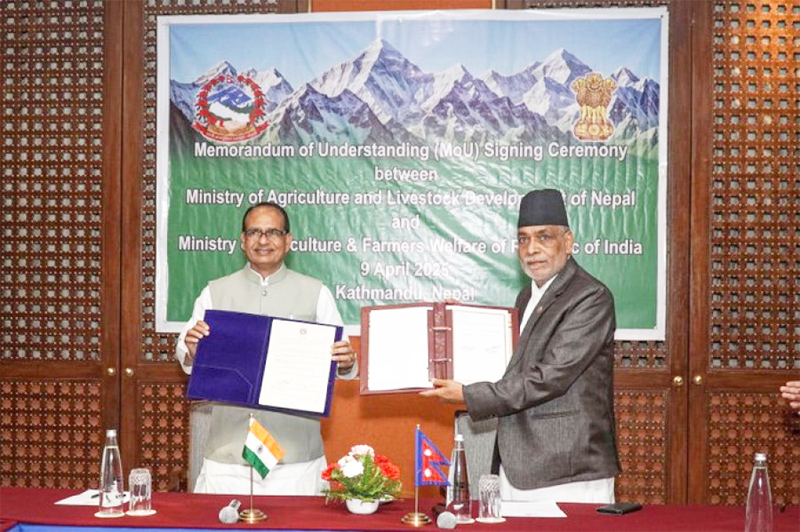Indian moms rank 3rd in foreign-born babies in US
Fri 28 Oct 2016, 12:18:45
Indian women rank third after their Mexican and Chinese peers among foreign mothers giving birth to children in the US with Asian immigrants increasingly accounting for a larger share, according to a latest study.
Among new foreign-born US mothers from the top 10 sending locations, those from India stand out for their low share of births outside marriage (one per cent), high rates of college degree attainment (87 per cent) and high annual family incomes (USD 104,500), the Pew Research Center said yesterday.
At the opposite end of the spectrum, new mothers from Honduras stand out for the high share who are unmarried (66 per cent), lack a high school diploma (51 per cent) and are living in poverty (49 per cent), it said.
"New moms from India stand out on both measures – almost nine-in-ten (87 per cent) have a bachelor's degree, and their annual median incomes top USD 100,000," said the study according to which after rising for decades, the share of US babies born to unmarried women has stabilised in recent years, driven by a sharp decline in births outside of marriage among foreign-born women, and a levelling off among US-born women.
According to the report, as per the latest statistics, in 2014 as many as 901,245 babies were born out of foreign-born mothers. Of these, Mexico accounted for the largest share of 287,052, followed by China (44,829) and India (43,364).
The 287,000 births to Mexican-born women in 2014 outnumbered all births to women from Asia, Europe, North America and Oceania combined.China and India are the next most common origin countries – babies with mothers from these countries each account for five per cent of births to the foreign born.
It said none of the other countries comes even close to India when it comes to education and financial well off."The Indian case is particularly extreme – none of the other top sending countries come close in terms of the share of new moms with a bachelor's degree. Some six-in-ten new mothers from China and about half from the Philippines (52 per
cent) have this credential. About a third of new mothers from Vietnam (35 per cent) have a bachelor's degree, while 18 per cent lack a high school diploma," the report said.
cent) have this credential. About a third of new mothers from Vietnam (35 per cent) have a bachelor's degree, while 18 per cent lack a high school diploma," the report said.
In terms of financial well-being, Indian-born new mothers have annual median family income more than twice as high (USD 104,500) as new US-born mothers (USD 51,200).
At the other end of the financial spectrum, just four per cent of Indian-born new mothers are in poverty, compared with 26 per cent of US-born mothers, it added.New mothers from the Philippines, Vietnam and China are also relatively well-off. Those from the Philippines have annual incomes of about USD 75,000, those from Vietnam have incomes of about USD 70,000, and those from China have incomes of about USD 67,000, the study said.
Poverty rates for new mothers from these countries range from nine per cent to 14 per cent. Further more than nine-in- ten mothers of newborns from the Philippines and India are English-proficient, meaning they speak English "well" or better, it said.
"Just one per cent of new mothers from India are unmarried," the report said, adding that marriage is virtually universal among new mothers from India.
Births outside of marriage are also quite uncommon for new mothers from the other top sending countries in Asia: 11 per cent of new mothers from China are unmarried, as are 18 per cent from Vietnam and 19 per cent from the Philippines. The US average is 42 per cent.
Two-thirds of births to women from Honduras are to unmarried mothers. More than half of births to women from most other Latin American countries also occur outside of marriage, it said.The exception is among women from Mexico: 47 per cent of births to Mexican immigrants occur outside of marriage, a rate slightly higher than among births to US-born mothers who are unmarried (42 per cent).
Pew said some 23 per cent of new mothers from India are 35 years old or older – far below the shares found among new mothers from the other major Asian sending countries.
No Comments For This Post, Be first to write a Comment.
Most viewed from International
Most viewed from World
AIMIM News
Latest Urdu News
Most Viewed
May 26, 2020
Do you think Canada-India relations will improve under New PM Mark Carney?
Latest Videos View All
Like Us
Home
About Us
Advertise With Us
All Polls
Epaper Archives
Privacy Policy
Contact Us
Download Etemaad App
© 2025 Etemaad Daily News, All Rights Reserved.




.jpg)
.jpg)








.jpg)
.jpg)
.jpg)
.jpg)
.jpg)
.jpg)
.jpg)
.jpg)
.jpg)
.jpg)
.jpg)
.jpg)


















